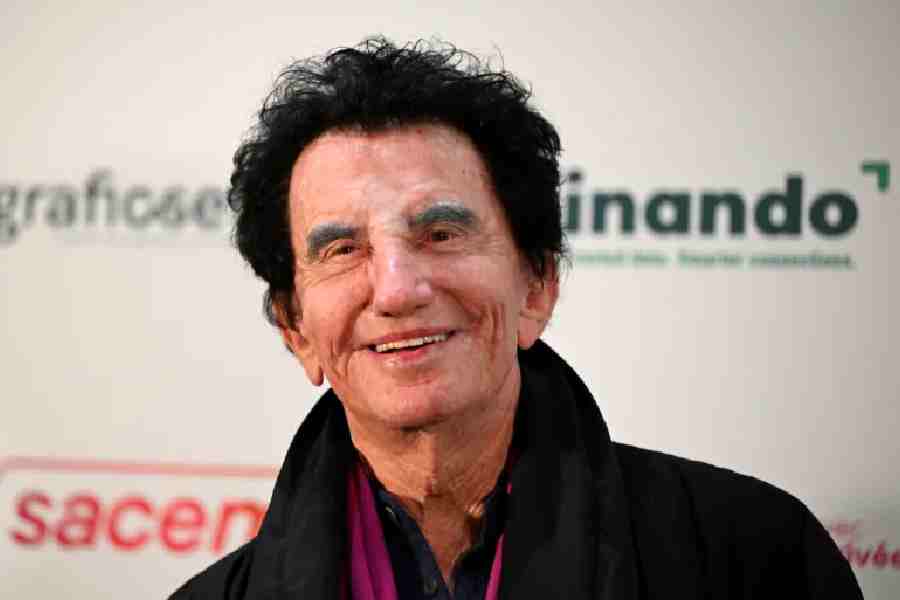
Mamata Banerjee’s government might have pulled out New Town from government of India’s ambitious Smart City programme on political and financial grounds but experts feel that may be a boon by default for the sustainability of the city. For a change, the administration agrees.
New Town Kolkata Development Authority (NKDA), which went overboard with the Smart City campaign before the state government’s change of stance pulled it back, has since taken a U-turn and started pitching for Green City that the chief minister proposed in place of Smart City, largely piggybacking on the reasons that the experts have been advocating.
“From Smart City, we are now moving towards Green City which is much more sustainable,” said NKDA chairman and urban development secretary Debasish Sen at a recent meeting on Smart Cities, organised by Observer Research Foundation (ORF) along with Heidelberg University, Germany in Rajarhat, near City Centre 2.
Experts, however, point out that the state’s proposed Green City concept, announced to counter the Centre’s Smart City programme, is yet to be born and reserve comments on its viability till it takes shape.
Power tussle
“Green City does not favour one area over another like the Smart City project does. Everybody will have requisite infrastructure like solar lighting, water recycling and WiFi among other facilities in the Green Cities. We will prepare the final guidelines soon,” added Sen.
He also complained that the idea of a separate entity — a special purpose vehicle (SPV) — mandated to run the Smart Cities, is against the 74th constitutional amendment which has given powers to elected urban bodies to call the shots.
According to the Smart Cities Mission guidelines, the SPV will plan, appraise, approve, release funds, implement, manage, operate, monitor and evaluate the Smart City development projects. Each Smart City is supposed to have an SPV which will be headed by a full-time CEO and have nominees of the central government, the state government and the urban local body on its board.
Expert’s comments
Urban experts, to whom The Telegraph Salt Lake spoke either at the ORF programme or elsewhere, have voiced other concerns about Smart Cities in their present avatar.
“There is nothing much sustainable about the way Smart Cities have been contemplated so far. There is much emphasis on the technology- driven physical infrastructure developments but not as much on social infrastructure. I feel that Smart City programme, if executed, will only add to the division in society as it will leave a large section of people outside the ambit of the programme purely due to its design,” observed Mahalaya Chatterjee, an urban economics expert from Calcutta University on the sidelines of the ORF meeting.
“Smart City talks about participation. A significant proportion of our population is socio-economically challenged and still does not have access to the internet. How are they expected to participate?” wondered Chatterjee.
The report prepared by ORF has also highlighted the gap between promise and practice of the Smart Cities Mission. “The idea of Smart Cities appears very promising, but in reality it is a utopian experiment. It was argued that Smart Cities may also lead to social polarisation which subsequently engenders social mistrust, violence and so on,” reads the report, a copy of which is with The Telegraph Salt Lake.
Tapas Ghatak, an urban development expert formerly with the CMDA who was associated with a host of urban development programmes in the state and the country, recounted an anecdote. “When the Smart City programme was just launched and we had a meeting in Delhi on the issue, somebody got up and asked: ‘Smart for whom?’ I still don’t know the answer.” Ghatak, a resident of Sourav Abasan, EE Block, pointed out though e-governance is largely pushed in the Smart City programme in reality the practice in Bengal was initiated more than a decade back.
“It’s an essentially borrowed Western concept and difficult to implement in our conditions. A balance needs to be maintained and the city, smart or not, should facilitate a humane and wise way of life as Tagore showed in Santiniketan and Sriniketan,” observed Arunendu Banerjee, a Tagore exponent and an architect.
Joy Sen, from the architecture department in IIT Kharagpur, pointed out that pockets of smart urban areas would not provide sustainability. “If we create pockets of smartness then with time increasing pressure will be built on these so-called smart pockets from the surrounding not-so-smart areas and the entire sustainability will be in doubt,” observed Sen.
Experts also point out that the environment has hardly been considered in totality in the planning of Smart Cities. “Smart Cities talk about a host of infrastructures but natural infrastructure seems to be missing. Moreover, natural capital of the area has not been considered,” stated Nilanjan Ghosh, an ecological economist associated with ORF and WWF India.
“For example, the East Calcutta Wetlands, which not only naturally treats huge amounts of foul water daily but actually makes it suitable for agriculture, is a natural subsidy to the city of Calcutta and also to the cities on its immediate fringes. However, the present form of Smart City planning does not have much scope to accommodate this natural asset,” explained Ghosh.
Experts also point out that climate change, a major threat to future urban development within the Calcutta metropolitan area including New Town, was hardly accommodated in the planning of the Smart City. According to a report of the Intergovernmental Panel for Climate Change (IPCC), the Calcutta metropolitan area, including New Town, will soon have maximum climate risk in Asia.
“Where has that concern been reflected in the Smart City planning of New Town?” asked a climate change expert.
However, an official in know of the things clarified that political calculation, rather than climate change or environmental consideration, has triggered the change of heart in the state government. “The Smart Cities Challenge contest has been rejected by the state government solely on financial and political grounds. When it was seen that the state has to cough up nearly Rs 500 crore for the proposed Smart Cities in Bengal but the union government will have major control over its planning and implementation the state government lost interest. Moreover, the state government was also not keen to charge water tax as mandated by the Smart City norms. The chief minister has felt that rejection of the Smart City tag may also be used as a handy tool in her campaign against the Narendra Modi government,” explained the official.
Announcing of the Green City project, experts say, is more of a knee jerk reaction to cover the withdrawal from the Smart City programme.
“No one knows what the government is meaning by Green City. There is no guideline so far,” observed Ghatak, who explained that mere setting up of some greeneries or putting up some solar lights do not necessary turn a city green. “The idea of Green City or eco city as they are known globally is basically to ensure minimum environmental stress and optimal use of natural resources in the area,” reminded an expert.
“Being an area with significant air pollution and high density of cars as well as problems of surface water supply and appropriate waste and drainage management, it’s interesting to see how they plan to turn New Town green,” observed another expert.
The experts feel that the state will perhaps identify some of the Smart City attributes and repackage them in the name of Green City.
Are you happy that New Town opted out of the Smart Cities Challenge?
Write to The Telegraph Salt Lake, 6 Prafulla Sarkar Street, Calcutta 700001 or email to saltlake@abpmail.com











